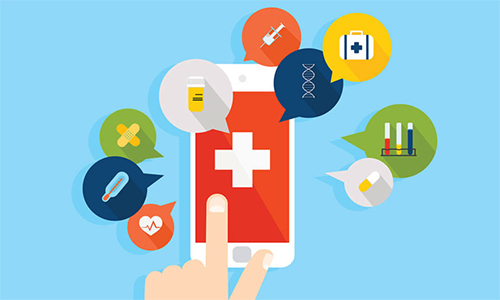UK’s NHS Aims to Build a Library of Reliable Mobile Health Apps.
February 27, 2018
Source: mHealth Intelligence
 880
880

The UK’s National Health Service is looking to beef up its library of mobile health apps.
The NHS has sent out a call to mHealth developers and healthcare providers to submit their digital health apps for inclusion in the Apps Library. And they’re selected Our Mobile Health, a London-based mHealth company, to assess the apps against the agency’s clinical, technical and safety standards.
"This agreement with Our Mobile Health is part of our ongoing commitment to setting national standards and helping patients and citizens better manage their health," NHS Digital Program Director Hazel Jones said in a news release. "Patients can be confident that the apps they are using are safe and trusted. We are looking forward to working with Our Mobile Health in developing that process."
"In the future we hope to invite more third-party assessors to work with us on the assessment procedure and develop and speed up the system so that we can improve the array of apps featured on the Library,” she added. “This is an exciting opportunity for the many developers out there that come from all sections of the market to put forward their apps for assessment."
The library, which now includes 46 apps, was launched in April 2017 after four years of debate over how to properly analyze new mHealth platforms. A corresponding site, Developer.nhs.uk, offers information on how to prepare an mHealth app for the library.
As of now, myCOPD is the only app approved for use in the NHS. Two others - Chill Panda, an app for anxiety management, and Cypher, an anonymous social network app for self-support – are being tested. The other 43 have passed a technical assessment and been deemed to be safe and compliant with data-protection regulations.
Healthcare organizations and federal regulators have long sought to harness the so-called “Wild Wild West” of mHealth apps – now numbering more than 318,500 worldwide – with standards that reassure both provider and consumers.
On this side of the Atlantic, Xcertia, an mHealth app evaluation and certification resource launched in 2016 by the American Medical Association, American Heart Association and the Healthcare Information and Management Systems Society, recently unveiled its first proposed guidelines for app operability, privacy, security and content.
“Cooperative input on the guidelines from consumers, developers, payers, clinicians, academia and other motivated stakeholders will provide Xcertia with guidance on where it needs to focus its efforts in 2018 to positively impact the trajectory of the mobile health app industry,” Michael Hodgkins, MD, chairman of the group’s Board of Directors, said in a press release calling on the public to review the guidelines.
The consequences of lax regulation are clear. Just this month, the U.S. Food and Drug Administration issued a Class 2 device recall on the AccuCheck Connect diabetes management app developed by Roche, after company officials warned that it could cause people with diabetes to administer incorrect doses of insulin, potentially putting them at risk of death.
In developing their library, the UK’s NHS is hoping to create what it calls a “one-stop shop” for consumers seeking mHealth apps.
"Digital technology is now a part of all our lives and in the NHS we want to harness the advantages of digital to improve services and empower patients to take control of their own health," said Juliet Bauer, NHS England’s chief digital officer.
The NHS had launched the NHS Health Apps Library in 2013, but closed the site two years later after a study published in BMC Medicine found “poor and inconsistent implementation of privacy and security, with 28 percent of apps lacking a privacy policy and one even transmitting personally identifying data the policy claimed would be anonymous.”
The authors of that study, Paul Wicks and Emil Chiauzzi – employees of PatientsLikeMe, which had a free clinical trial matching tool listed in the NHS Health Apps Library – noted mHealth apps can be and are being reviewed by journals, organizations or commercial sites like iMedicalApps, but the best bet may lie in a government program.
“In order for medical apps to evolve, improved oversight and continuous quality review is required,” they wrote. “Centralized oversight by regulatory bodies has the advantage of regulatory expertise and powers to sanction. However, these regulatory bodies are too under-resourced to wade through the sheer volume of apps and there appears to be little appetite to get involved.”
By DduRead more on
- Drugdu.com’s 4 most Popular Veterinary APIs and Veterinary medicine Suppliers September 6, 2018
- 4 Pharmaceutical Machinery Packaging and Materials Suppliers September 6, 2018
- 3 ENT Equipment and Medical Anaesthesia Equipment Suppliers September 6, 2018
- Need Natural Plant Extracts? Here are 4 Suppliers! September 6, 2018
- Healthcare Products & Food Additives Suppliers for International Companies September 6, 2018
your submission has already been received.
OK
Subscribe
Please enter a valid Email address!
Submit
The most relevant industry news & insight will be sent to you every two weeks.



